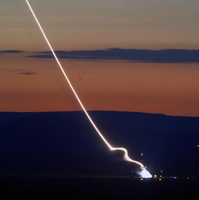The Obama administration's emphasis on "smart power" is by now well known. To most observers, that has meant the need to "balance and integrate all elements of our national power" in order to deter and defeat emerging threats, as President Barack Obama himself put it in a speech at National Defense University in Washington on March 12. Many have focused on Obama's insistence, in the same speech, that "we cannot continue to push the burden on to our military alone" and his commitment to "comprehensive engagement with the world." What has gotten less attention is the central role Obama foresees in this approach for "strengthened partnerships with . . . foreign militaries and security forces that can combat . . . common enemies." The principle underpins Obama's new, "cooperative" strategy for the Afghanistan war, announced last week. But it also applies to the Middle East, where Washington is quietly building an alliance of heavily armed, pro-U.S. nations meant to contain Iran.
War is Boring: Avoiding the Next ‘Trillion-Dollar War’

